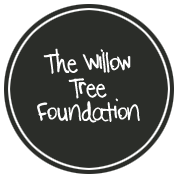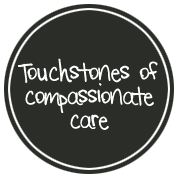Resilience and Hardiness
Jack's neurologist shared an article with me titled "Family Function in Families of Children With Duchenne Muscular Dystrophy". (DMD) The article investigated the relationship of child- and family-related variables with family function in families with children who have DMD. However, the different criteria looked at were based on prior studies of children with chronic illnesses other than DMD, so I think its relevance extends to all families with chronically ill children, not just those whose children have DMD.
Caring for a family member with a severe chronic illness has been associated with increased family stress, diminished health for caretakers and increased financial burden. (YOU THINK?) Some families appear to cope with these effects of chronic illness in a child better than others, and the concepts of family hardiness and resilience have been introduced as variables explaining this ability to function effectively in the face of adversity.
Family resilience is defined as the "ability to function well and to be competent when faced with life stress."
I suppose it's a matter of how one defines "function well". I guess it's fair to say that I (and my family) function well . . . all things considered. I mean, I'm not strapped in a straight jacket, rocking back and forth in a padded cell, right?
Hardiness has been defined as "the internal strengths and durability of the family unit and is characterized by a sense of control over the outcomes of life events and hardships, a view of change as beneficial and growth producing, and an active rather than passive orientation in adjusting to and managing stressful situations."
I'm good with all the criteria for hardiness except the part where change is viewed as beneficial and growth producing. Nope, not me. I dislike change very much. However, I have to say that my ability to cope with change has improved significantly over the last eleven years. As one of Jack's docs told me awhile ago "you have mellowed beyond description". That said, I've got some more maturing to do before I see change as "beneficial" when talking about the kind of change that comes with having a chronically ill child.
Other interesting results from the study:
*the child's level of dependence was not significantly correlated with the family function.
Which means you don't "win" if your child has a higher level of dependence. (not that it's a contest or that you "win" anything). Chronically ill children = family stress regardless of how involved they are.
*parents whose children were diagnosed at a younger age did better because they had more time to garner information regarding the disease and how to cope with its effects on the family.
The ultimate findings of the study indicate that as family hardiness, caregiver health and family support scores increase, family function increases.
The study concluded with the statement that further research into the factors that promote hardiness, health, and support could assist in designing interventions to assist families to maintain and improve their level of function.
From my perspective, the "findings" were obvious and shouldn't have required a study to ascertain. They should have skipped the first part and jumped right to finding factors that promote hardiness, health, and support. Although, I think that hardiness and resilience are innate and aren't traits that can be taught or acquired. The factors we can control are health and support.
So to all my resilient and hardy friends, thank you for your faithful support. As for the health part of the equation .... it's time for me to head to the gym!
******************
Resilience is rooted in a tenacity of spirit - a determination to embrace all that makes life worth living even in the face of overwhelming odds. When we have a clear sense of identity and purpose, we are more resilient, because we can hold fast to our vision of a better future.









5 comments:
I suppose that kept someone suitably employed for a while! As you say, pretty obvious stuff really. I'm not sure I've become more hardy and resilient as a result of Sam's illness - I was always a tough nut anyway! I have become more assertive though, things I used to view fearfully are nothing to me now. Interesting!
That's interesting Ann, especially this bit
Other interesting results from the study:
*the child's level of dependence was not significantly correlated with the family function.
Which means you don't "win" if your child has a higher level of dependence. (not that it's a contest or that you "win" anything). Chronically ill children = family stress regardless of how involved they are.
It makes sense that it's more complicated than that.
Julie- I absolutely agree. It's good that there are studies out there regarding how chronically ill children affect families - at least the medical profession sees it as important. But really, do you need a study to document that having a chronically ill child has negative impacts on families?! As for being a tough nut ... I think it may be why we got the kids we got, because God knew we tough nuts could handle it! :)
Susan -- the part of my post you point out was really directed to myself. Pointing out that while I may have a child who is more involved than most -- it doesn't mean I have it harder than anyone else -- so, no pity parties allowed on my part.
Ann,
I need to get that study from you. I'm thinking about something like that for research. Not sure what just yet, but something related.
They really didn't need to conduct a study, they could have just spent the weekend at our house.
Post a Comment